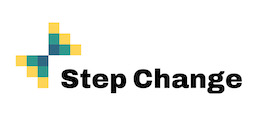
Science Transformation in EuroPe through Citizens involvement in HeAlth, coNservation and enerGy rEsearch (STEP CHANGE)

Project funded by the European Union’s Horizon 2020 Research and Innovation Programme
Grant Agreement n. 101006386
Duration: 36 months
Start date: 01/03/2021
The project official website
Follow the Step Change project on:
Citizen science is one of the many participatory approaches that have developed in recent years in the broader field of public engagement in science and innovation. However, it is the approach that more directly puts the very practice of science in the spotlight. For such a reason, citizen science can play an even broader societal and scientific role than is generally acknowledged, particularly in those critical fields of research – such as energy, health and environment – where human and non-human factors are deeply entangled. In this sense, citizen science can play a pivotal role by making science more socially robust, inclusive and democratic while strengthening the capacity of scientific investigation over emerging phenomena that cannot be easily caught within narrow disciplinary boundaries.
STEP CHANGE is precisely aimed at exploring and exploiting the potential of citizen science in terms of knowledge and innovation advancement and science and society alignment, through the development and evaluation of 5 hands-on Citizen Science initiatives in three different areas (Energy, Health and Environment). The five initiatives will be respectively conducted in Slovenia (on wildlife conservation), United Kingdom (on non-alcoholic fatty liver diseases), Germany (on energy communities), Italy (on infectious disease outbreak preparedness) and Uganda (on off-grid renewable energy in agriculture). Based on the experience emerging from the five Citizen Science initiatives and their results, a set of recommendations will be formulated and some tools will be developed to a better anchoring of citizen science in scientific institutions.
The project includes three different stages. The first stage will be devoted to preparing the ground for the Citizen Science initiatives, especially for what concerns the recruitment of citizen scientists and the involvement of stakeholders (WP1). The second stage will focus on the development of the Citizen Science initiatives by the different teams (WP2 to WP6). The initiatives will be supported through training and mutual learning activities (WP7) and a participatory monitoring and evaluation system (WP8). Finally, the stocktaking stage (WP9) is planned to support the sustainability of the Citizen Science initiatives and to take stock of the project outcomes. STEP CHANGE also includes two cross-cutting work packages respectively devoted to communication and dissemination activities (WP10) and the management of the project (WP11).
Overall, the project consortium includes 11 partners led by the University of Primorska (Slovenia).
